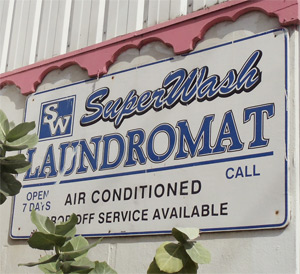 It was an Aha! moment.
It was an Aha! moment.
I was editor-in-chief of a small, monthly newspaper, Northwest Ethnic News, published by a nonprofit with a conservative-sounding name, The Ethnic Heritage Council. Several generations of editors before me (I was the only to last more than two years) settled the paper in a left-leaning, open-minded political terrain -- inter/cross/multi/many ethnic/peace/love/freedom. We covered arts and issues related to Seattle ethnic communities.
Our president was an ethnomusicologist with good friends in Seattle's jazz world. Our board included Northwest Native-, African-American-, Swedish-American-, Samoan-American (and on) activists. I turned press releases into small announcements, comissioned articles and interviews and conducted some myself on politics and on arts, music among them. Music was all around, Indian and Pakistani, Northwest Native, African (one word to describe a continent isn't fair, I know), Scandinavian, Irish. Tablas, drums, fiddles, ouds, horns, pipes, harps . . .
A quick tribute to my parents: Although my childhood was fraught, yes fraught, with glorious classicism--Bach, Beethoven, Brahms, El Greco, Rembrandt, Dante (and so on)--my parents never said a word against rock or soul. I was allowed diversity, although the feel of my first 18 years is of having those names (Bach, Beethoven . . . ) hammered into my flesh every day. Yeah, my father talked about having seen Art Tatum in the Village, and my mom had a Rogers and Hart songbook on the piano, but I will stick with FRAUGHT. As soon as she left home, one of my sisters turned forever more to country; one to rock and world; one to opera (which my father didn't like) and when she disallowed that, well, I'm not sure where she landed.
In my forties I met a few people--a second cousin of my father; my cousin; a friend of my mother's--who knew my family when I was a kid--and there aren't many--and they were nervous to talk about art with any member of my immediate family. It was about my father using his thwarted energies and intelligence to wow.
So here I was, working at a nonprofit, in my metaphorical cloth coat, i.e. I was a humble and shy extrovert, receiving yet another of my life's gifts of music -- I can define my life by its musical periods (and, up to another point -- by its spiritual eras).
I would like to be able to tell you I was at a concert for gamelon or festival of drumming that I suddenly saw the light. It was, in fact, at work. In the office. Doing the routine. Swearing at PageMaker, spilling coffee on my desk, or writing. And I saw it:
There is no food chain in music. One type is not superior to another. I wasn't simply comparing Indian ragas to European string quartets, making the conversion from one form of classical to another. I suddenly understood that the hierarchy I'd grown up with was invalid.
What a release.
I had/have friends who don't understand my exhilaration. They weren't raised with all sorts of enforced attitudes. Other friends think I'm crazy or simplistic or a turncoat. They can't let go of Euro-classicism, not out of love -- we may defend what we adore--but out of an inability to loosen up and accept. (The same sort who turn their noses up at graphic novels without ever having given them a chance.)
I want classical orchestras to exist and to thrive. In every city. I want music conservatories encouraging study of Schubert and Wolf lieder to carry on. I just don't want to exalt them above all other forms of music or musicianship. I've talked to jazz musicians who say their classical training was invaluable in learning jazz timing, and of course there are jazz musicians who learned on the job.
I'm rambling. The main thing is not that it's all good. It's not all good. There are still masters of each art form and excellence continues to be a tribute to muses and goddesses and gods of Orpheus.
But it is all different than I was led to believe for so many years, even when my ears informed me of lacks in my childhood appraisals. My parents gave me a great gift of Euro-classical; a friend in San Francisco offered me was essentially a master class in listening to, in his case, Bach cantatas (he ran a coffee house, The Coffee Cantata--the original--not the one on Union--for years). My sister schooled me in jazz and ragas. My brother-in-law in funk. My instincts were for soul. My job as editor opened me to world. My time with contra dancers was all about fiddletunes. Being alive in America infuses me with rock and with roll. Alternative radio stations, which flourished in the 70s, allowed all sorts of music to whisper in my ears, more of it alternative forms of rock, as opposed to imaginative and fanciful New Sounds in N.Y. public radio (WNYC 93.9FM), which is alternative in terms of all the above plus dolphins and whales. (Tune in, listen, it's well worth your time.)
So at my desk I had a white light experience. I climbed out of box. The horse had a different color. Merriment in Oz.
A privilege. Opening up to change? An honor. And man, it's like a total trip.
(The paining is by George Littlechild, an artist we featured in the paper.)
 You may have to tie me down and hold me to this, come, oh,the harsh light of Saturday, Jan. 2, 2010, but I am making an effort here and now to release my boundless anger,
You may have to tie me down and hold me to this, come, oh,the harsh light of Saturday, Jan. 2, 2010, but I am making an effort here and now to release my boundless anger, 


















